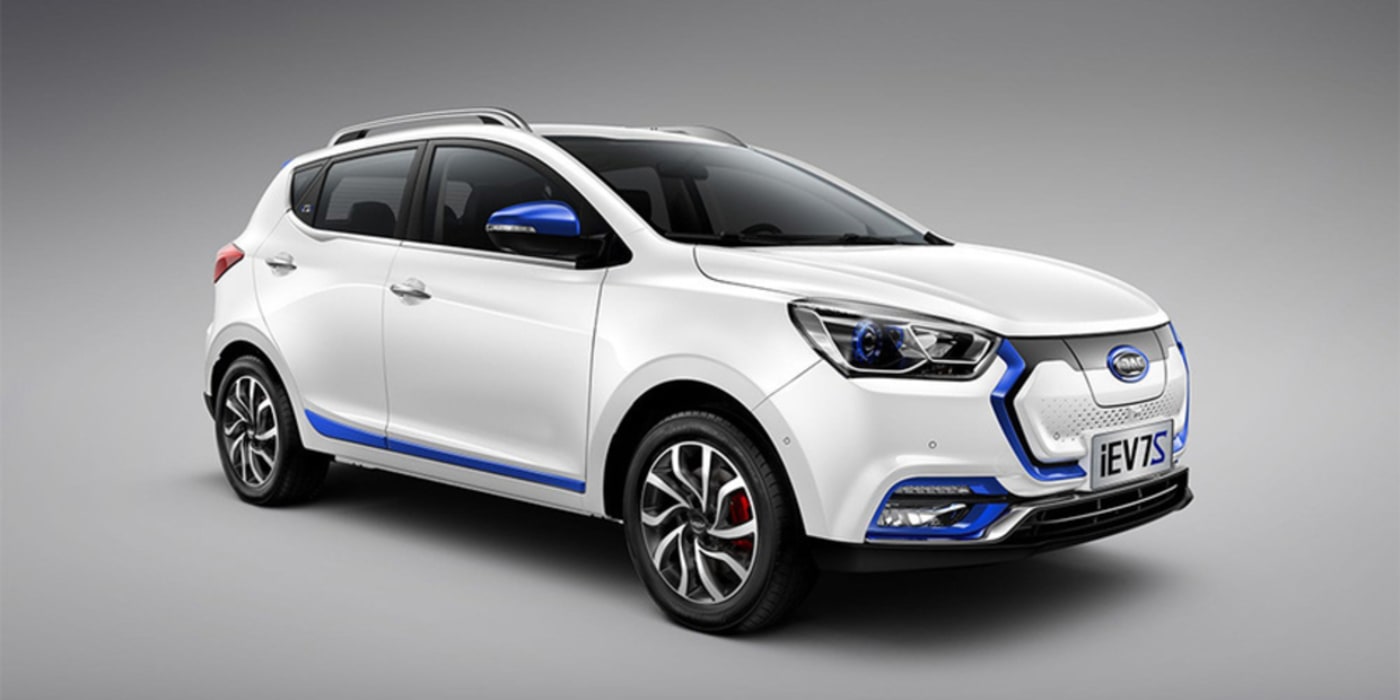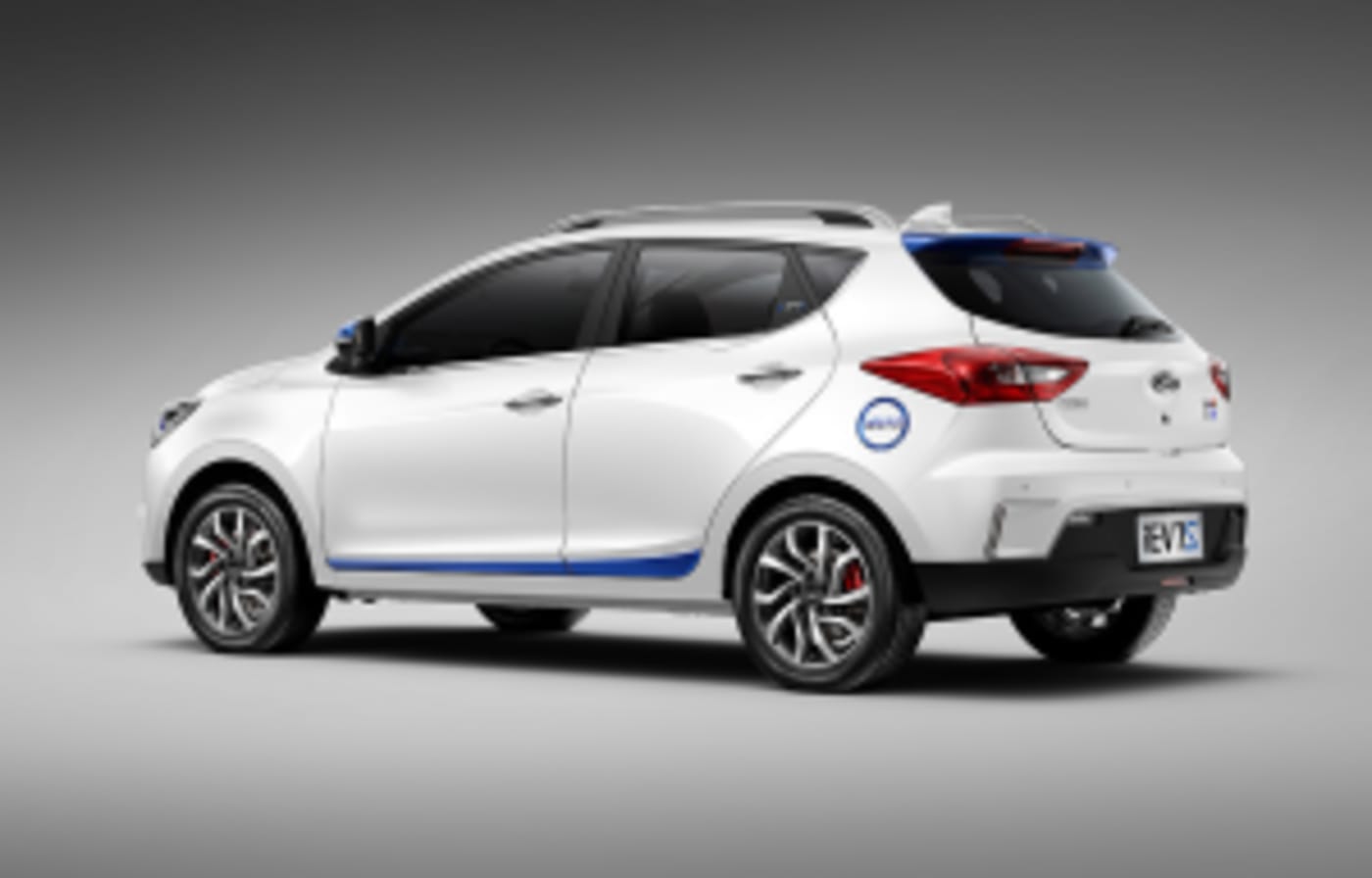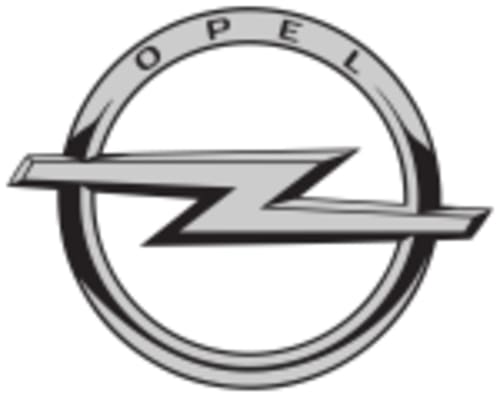Information and electric vehicles of the [object Object] brand

![[object Object] logo](https://res.cloudinary.com/donyiousk/image/upload/w_80/f_auto/c_scale,w_1400/v1/car/xpzxlhhewizcgkejmemx)
Jac
Luxury redefined: Electric.



JAC electric vehicles
What makes JAC EVs different from other brands?+
JAC, or Jianghuai Automobile Co., Ltd., is a Chinese automaker that has been producing electric vehicles EVs since 2012. While they might not be the most well-known brand internationally, they have been making strides in the Chinese EV market and are starting to gain some traction globally.
Here are some key aspects that make JAC EVs distinct from other brands:
Focus on affordability: JAC EVs are generally positioned as more affordable options compared to many other established EV brands. This is achieved through cost-effective manufacturing practices and a focus on practical features over excessive luxury.
Commercial vehicle focus: JAC has a strong track record in producing commercial vehicles, including trucks and buses. This experience translates well to their EV lineup, which includes a variety of commercial EV options alongside passenger cars.
Battery technology: JAC invests heavily in battery research and development, and their EVs are equipped with lithium-ion batteries that offer competitive range and performance. They are also exploring solid-state battery technology for future models.
Government support: As part of China's push for EV adoption, JAC benefits from government subsidies and incentives. This further contributes to the affordability of their vehicles.
Rapid growth: JAC is one of the fastest-growing EV brands in China, with their sales figures steadily increasing year-on-year. This indicates a growing consumer acceptance and trust in their products.
Technology partnerships: JAC has collaborated with established technology companies like Volkswagen and CATL to develop and manufacture their EVs. This access to expertise and resources helps them stay competitive.
Focus on emerging markets: While JAC is making inroads into developed markets, they have a strong focus on emerging markets like Southeast Asia, Africa, and Latin America. This aligns with their strategy of offering affordable and practical EVs to regions with growing EV demand.
However, it's important to note that JAC EVs also face some challenges:
Brand recognition: Compared to established brands, JAC still lacks global brand recognition, which can be a hurdle in attracting new customers.
Quality concerns: Some reports have raised concerns about the quality and reliability of JAC vehicles, although the company is actively working to address these issues.
Limited model range: JAC's current EV lineup is primarily focused on SUVs and commercial vehicles, with a limited selection of passenger cars. Expanding their model range could attract a wider customer base.
Overall, JAC EVs offer a compelling combination of affordability, practicality, and technological advancements. While they may not be the flashiest or most luxurious option, they are a solid choice for budget-conscious buyers looking for a reliable and efficient EV. As JAC continues to grow and improve its offerings, they are likely to become an increasingly significant player in the global EV market.
What are the different models of JAC EVs available?+
JAC offers a variety of electric vehicles across different categories, including:
Passenger Cars:
- JAC e-JS4: This compact SUV features a 58.2 kWh battery with a range of up to 420 km 261 miles on a single charge. It has a modern and stylish design with a spacious interior and advanced technology features.
- JAC e-JS1: This city car is a more affordable option with a 30.2 kWh battery and a range of up to 260 km 162 miles. It's perfect for everyday commuting and urban driving.
- JAC iEV7s: This sedan offers a good balance of range and performance with a 39 kWh battery and a range of up to 225 km 139 miles. It has a comfortable and well-equipped interior.
Commercial Vehicles:
- JAC N55 EV: This light truck is designed for commercial use with a 96.7 kWh battery and a range of up to 300 km 186 miles. It has a spacious cargo bed and a payload capacity of up to 1.5 tons.
- JAC Sunray: This electric bus is available in various configurations with different battery capacities and passenger capacities. It's a clean and efficient transportation solution for cities.
Other:
- JAC eQ5: This mini EV is a great choice for short trips and city driving with a 17.9 kWh battery and a range of up to 130 km 81 miles. It's compact and easy to maneuver.
The availability of these models may vary depending on your region. You can visit the JAC Motors website or contact your local JAC dealer for more information.
How much do JAC EVs cost?+
The price of JAC EVs can vary depending on the specific model and configuration you choose. Here's a brief overview of the starting prices for some popular JAC EV models in Vietnam:
- JAC iEV7S: This small SUV starts at around 520 million VND approximately $22,000 USD.
- JAC E10X: This compact hatchback starts at around 440 million VND approximately $18,700 USD.
- JAC A500S: This larger SUV starts at around 590 million VND approximately $25,100 USD.
It's important to note that these are just starting prices, and the actual price you pay may be higher depending on options and dealer markup. Additionally, JAC EV prices may vary depending on the specific country or region you're in.
If you're interested in getting a more accurate estimate of the price of a specific JAC EV model, I recommend contacting a JAC dealership near you. They will be able to provide you with the latest pricing information and help you configure a model that meets your needs and budget.
Here are some additional things to keep in mind when considering the cost of a JAC EV:
- Government incentives: In some countries, there are government incentives available for purchasing electric vehicles. These incentives can significantly reduce the cost of ownership.
- Charging costs: The cost of charging an electric vehicle will vary depending on your electricity rates and how much you drive. However, in general, it is significantly cheaper to charge an electric vehicle than to fill up a gasoline-powered car.
- Maintenance costs: Electric vehicles typically have lower maintenance costs than gasoline-powered cars. This is because they have fewer moving parts and require less frequent oil changes and other routine maintenance.
What is the range of JAC EVs?+
The range of JAC EVs can vary greatly depending on the specific model you're interested in, as well as external factors like driving conditions and weather. Here's a breakdown to give you a better idea:
Passenger Cars:
- e-J7: This model boasts a NEDC range of 402 km with its 50.1 kWh battery. However, in real-world scenarios, expect a range between 280-350 km depending on factors like speed, acceleration, and temperature.
- e-JS4: This smaller car comes with a 30.7 kWh battery and offers a NEDC range of 271 km. In real-world conditions, the range typically falls between 180-240 km.
Commercial Vehicles:
- N55 EV: This light truck has a 56.6 kWh battery and a NEDC range of 220 km. However, its actual range could be anywhere between 140-180 km depending on payload and driving conditions.
Factors Affecting Range:
It's important to remember that the official NEDC range is often achieved under ideal conditions and may not reflect real-world driving. Several factors can influence the actual range you get, including:
- Driving style: Aggressive acceleration and high speeds will drain the battery faster.
- Weather: Cold weather significantly reduces battery range.
- Road conditions: Hills and stop-and-go traffic can also impact range.
- Optional equipment: Features like heated seats and a sunroof can use additional energy.
Additional Resources:
- JAC Motors website: Link
- EV Database: Link
How long does it take to charge a JAC EV?+
The charging time for a JAC EV depends on several factors, including:
- JAC EV model: Different JAC EV models have different battery capacities and charging capabilities. For example, the JAC iEV7S has a 39 kWh battery, while the JAC e-JS4 has a 66.8 kWh battery. As a result, the e-JS4 will take longer to charge than the iEV7S.
- Charger type: You can charge a JAC EV using a variety of chargers, each with different power outputs. Generally, faster chargers will reduce charging time. Here are some typical examples for the iEV7s:
- Wall Plug 2.3 kW: Around 20 hours.
- 1-phase 16A 3.7 kW: About 12 hours and 30 minutes.
- 1-phase 32A 7.4 kW: Approximately 7 hours.
- 3-phase 16A 11 kW: Roughly 12 hours and 30 minutes.
- Battery level: If your JAC EV's battery is already partially charged, it will take less time to reach full charge than if it were completely depleted.
- Ambient temperature: Extreme temperatures hot or cold can affect the charging speed of your JAC EV.
Given that you're currently in Ho Chi Minh City, Vietnam, you might own a JAC iEV7S, which is a popular model there. Based on that assumption, here's a rough estimate of charging times for different charger types:
- Level 1 charger home outlet: Approximately 20 hours.
- Level 2 charger public charging station: 3-7 hours, depending on the charger's power output.
- DC fast charger: Around 30 minutes to reach 80% charge.
However, to get the most accurate charging time for your specific JAC EV model in Ho Chi Minh City, I recommend consulting your car's manual or contacting the nearest JAC dealership. They can provide you with information specific to your model and the available charging options in your area.
What are the maintenance requirements for a JAC EV?+
The maintenance requirements for a JAC EV will vary depending on the specific model you have, but here are some general guidelines:
- Battery: The battery is the most important part of an electric vehicle, and it's important to keep it in good condition. Avoid letting the battery completely drain, and don't charge it to 100% all the time. It's also important to avoid extreme temperatures, as this can damage the battery.
- Electric motor: The electric motor is another important component of an EV, and it requires minimal maintenance. However, you should have it checked by a qualified mechanic every few years.
- Tires: EVs are typically heavier than gasoline-powered cars, so they put more stress on the tires. It's important to check the tire pressure regularly and make sure that the tires are in good condition.
- Brakes: EVs use regenerative braking to slow down the car and charge the battery. This means that the brakes don't wear out as quickly as on a gasoline-powered car. However, you should still have them checked regularly.
- Fluids: EVs don't have engine oil, but they do have other fluids that need to be checked and changed regularly, such as the coolant and brake fluid.
In addition to these general guidelines, it's important to consult the owner's manual for your specific JAC EV model. The owner's manual will have specific instructions on how to maintain your car, as well as a warranty schedule.
Here are some additional tips for maintaining your JAC EV:
- Take your car for regular checkups at a qualified mechanic.
- Use a Level 2 charger whenever possible, as this will help to prolong the life of your battery.
- Avoid using fast chargers too often, as this can damage the battery.
- Park your car in a cool, dry place whenever possible.
- If you're not going to be driving your car for a long time, store it with the battery at about 50% charge.
Does JAC offer any tax credits or incentives for purchasing an EV?+
Unfortunately, I don't have enough information to answer your question definitively. JAC stands for several different companies, and the availability of tax credits or incentives for electric vehicle EV purchases can vary depending on the specific country or region you're referring to.
To give you the most accurate answer, I need some additional context. Could you please tell me:
- Which JAC company are you interested in? Examples include JAC Motors, Jiangxi JAC, or JAC Capital
- In which country or region are you considering purchasing an EV from JAC?
Once I have this information, I can research the specific tax credits or incentives that might be available to you.
Additionally, even if JAC itself doesn't offer any direct incentives, the country or region where you're located might have general EV purchase incentives. Knowing your location will help me research those as well.
What is the warranty on a JAC EV?+
The warranty on a JAC EV varies depending on the specific model and year of purchase. However, in general, JAC EVs come with a standard warranty that covers the following:
- 5-year/100,000 km warranty on the battery and electric motor
- 3-year/60,000 km warranty on the remaining EV components
It's important to note that these are just general warranties, and the specific terms and conditions may vary depending on your location and the specific JAC EV model you purchase.
Here are some additional things to keep in mind about JAC EV warranties:
- The warranty starts on the date of purchase or delivery of the vehicle.
- The warranty is only valid if the vehicle is serviced at an authorized JAC service center.
- The warranty does not cover normal wear and tear, or damage caused by misuse or accidents.
If you are interested in learning more about the warranty on a specific JAC EV model, I recommend that you contact your local JAC dealer or consult the owner's manual for your vehicle.
Where can I learn more about JAC EVs?+
There are several places you can learn more about JAC EVs:
- JAC Motors website: The official website of JAC Motors has a section dedicated to its electric vehicles, with information on models, specifications, and features. You can also find brochures and owner's manuals on the website.
- EV news and review websites: There are many websites that cover electric vehicles, such as Electrek, InsideEVs, and Car and Driver. These websites often have articles and reviews of JAC EVs, as well as news about the company's latest developments.
- JAC EV dealerships: You can also learn more about JAC EVs by visiting a JAC EV dealership. Dealerships will have salespeople who can answer your questions and let you test drive a JAC EV.
- Social media: JAC Motors is active on social media, such as Facebook and Twitter. You can follow JAC Motors on social media to get the latest news about its electric vehicles.
Here are some specific things you can learn about JAC EVs:
- Models: JAC Motors currently offers a range of electric vehicles, including cars, SUVs, and trucks. Some of the most popular models include the iEV7s, e-JS4, and N55 EV.
- Specifications: JAC EVs come with a variety of battery sizes and ranges. The iEV7s, for example, has a 39 kWh battery and a range of 225 km 139 miles.
- Features: JAC EVs come with a variety of features, such as fast charging, regenerative braking, and a touchscreen infotainment system.
- Price: JAC EVs are generally more affordable than many other electric vehicles on the market. The iEV7s, for example, starts at around €29,900.





































